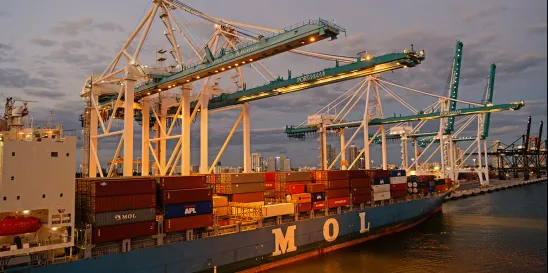As we last reported, Congress passed the Safer Seas Act (SSA) in December 2022 to combat and address sexual assault and sexual harassment (SASH) in the maritime industry. Generally, the SSA requires owners or operators of US flagged vessels and/or employers of seafarers on US flagged vessels to (1) take steps to train their employees on the prevention of SASH; (2) report incidents of SASH aboard vessels; and (3) install video and audio surveillance systems on certain vessels.[1] Likewise, the SSA delegates certain responsibilities to the US Coast Guard to investigate reports of SASH and to generally enforce its provisions. To assist stakeholders in navigating this new legislation and its requirements, the US Coast Guard has now issued several bulletins and policy letters to provide guidance. Below is a short synopsis of each guidance document:
- MSIB No. 1-23 (published on February 9, 2023): This Marine Safety Information Bulletin (MSIB) provides information regarding the SSA generally and lays out how and where vessel owners, operators, and employers of seafarers can report sexual misconduct.
- Policy Letter 23-04 (published on November 13, 2023): This policy letter provides guidance with respect to the requirement to post information regarding vessel owner or company policies prohibiting SASH as well as procedures and resources to report SASH. This information must be posted on all merchant vessels over 100 gross tons. The posting must be conspicuous, easy to read, and in an easily accessible area for all crew. Failure to display this information could result in a non-conformity under the International Safety Management Code and could lead to civil penalties.
- Policy Letter 23-05 (published on November 13, 2023): This policy letter provides guidance on surveillance requirements for commercial vessels that do not carry passengers. The SSA requires commercial vessels, excluding certain commercial fishing vessels, to install and maintain audio and visual surveillance systems. This requirement of the SSA applies to:
- Documented vessels with overnight accommodations for at least 10 individuals on board that are (a) on a voyage of at least 600 miles that crosses seaward of the Boundary Line or (b) at least 24 meters (79 feet) in overall length and required to have a load line under Title 46, Chapter 51.
- Documented vessels of at least 500 gross tons ... on an international voyage; and
- Vessels with overnight accommodations for at least 10 individuals on board that are operating for no less than 72 hours on waters superjacent to the outer Continental Shelf.
Pursuant to the SSA, these vessels must install video and audio surveillance equipment aboard the vessel no later than December 23, 2024, or during the vessel’s next scheduled drydock, whichever is later. The policy letter provides guidance on where such equipment must be placed, the quality of the surveillance, and additional guidance related to retention. Generally, the surveillance footage must be kept for one year after the footage is obtained, and it must be preserved for five years if associated with an alleged incident. In addition, the policy letter directs the Officer(s) in Charge, Marine Inspection to be aware of these new requirements, ensure compliance, and document any deficiencies via CG-835.
- Policy Letter 23-06 (published on November 13, 2023): This policy letter provides guidance on master key control requirements on merchant vessels. Under 46 U.S.C. § 3106, inspected commercial vessels are required to be equipped with a master key control system for physical, manual, or electronic keys or access systems, which provide access to all copies of the vessel’s master key. The policy letter directs vessel owners and operators to establish a list of crewmembers with access and keep that list on the vessel. The list must also be maintained within the vessel owner’s records and documented in the vessel’s safety management system. Pertinent to the SSA, the vessel must record in a logbook information on all access and use of the vessel’s master key, including dates and times of access, the room or location accessed, and the name and rank of the crewmember who used the master key. Any crewmember who uses the master key without having been granted access can be liable for a $1,000 civil penalty and may be subject to suspension or revocation. In essence, this policy letter and statute aim to track what rooms or other areas of the vessel a crewmember may have accessed, all in an effort to prevent unwanted or uninvited visitors.
- MSIB No. 13-23 (published on November 14, 2023): this MSIB simply summarizes the statutory requirements and directs stakeholders to review the aforementioned policy letters for additional guidance.
Collectively, these MSIBs and policy letters demonstrate that industry regulators are taking substantive steps to prevent and eradicate SASH aboard vessels. The SSA is now almost one year old, but many aspects of it remain open to interpretation. Vessel owners, operators, and employers must be aware of these new requirements and take action to comply.





 />i
/>i
